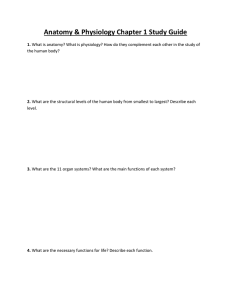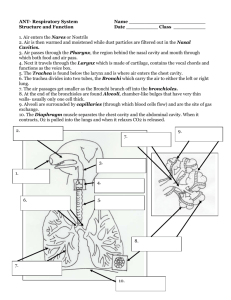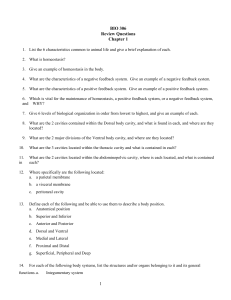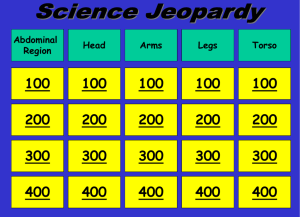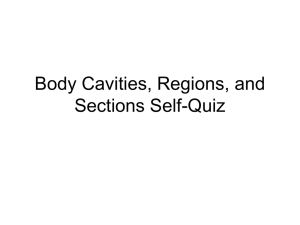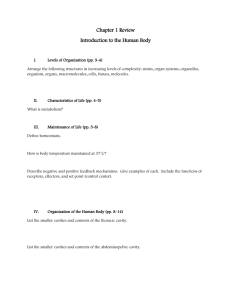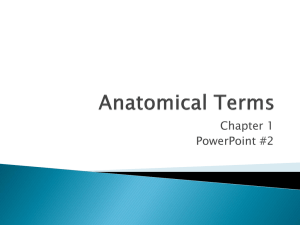Helium_VesselTuner_-_ODU-SLAC_RF_Dipole
advertisement
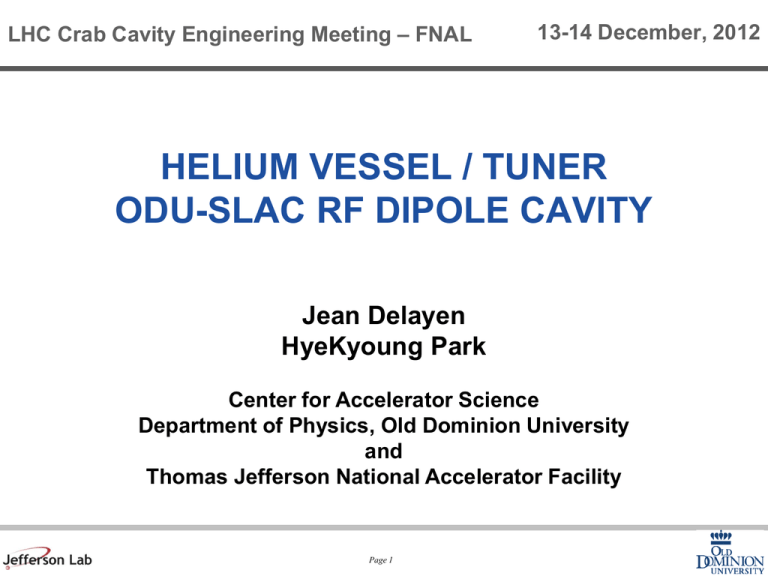
LHC Crab Cavity Engineering Meeting – FNAL 13-14 December, 2012 HELIUM VESSEL / TUNER ODU-SLAC RF DIPOLE CAVITY Jean Delayen HyeKyoung Park Center for Accelerator Science Department of Physics, Old Dominion University and Thomas Jefferson National Accelerator Facility Page 1 400 MHz RF-Dipole Cavity 60 cm <150 mm 35 cm 42 mm 194 mm 29 cm E Field Page 2 H Field Cryostat Design Consideration • Environment – Space constraints – Temperature, pressure, relief system – Typical Cavity/He vessel design condition At room temperature, 2-2.5 bar external to cavity, internal to He vessel At cryo temperature, 4-5 bar external to cavity, internal to He vessel • Safety code if applicable – ASME Boiler and Pressure Vessel (BPV) Code Allowable stress the lesser of 2/3 Yield or Tensile/3.5 – ASME B31.3 Process Piping Code • Material properties – Recent test results of Nb samples (RRR>250) at Jlab show a wide variation (RT). Modulus: 7.65-16.7 106 psi (53-115 GPa) Yield strength: 7-12 ksi (48-83 MPa) Tensile strength: 24-30 ksi (165-207 MPa) Page 3 Cavity Mechanical Strength-Warm • • • • Worst case during cool down Room temperature Nb property, 2.5 atm external pressure Modulus 55 GPa, Poisson’s ratio 0.38, Density 8.58 g/cm3, Yield strength 69 MPa Beam pipe tab fixed, gravity ignored to use symmetry 4mm thickness 3mm thickness (Pa) Yield strength (69 MPa) • • BPV code allowable strength (46 MPa) Red region is above the yield strength of the Nb plate as received state. The strength after cold working (forming) is not measured. Page 4 Cavity Mechanical Strength-Cold • • • • Worst case during operation Cryo temperature Nb property, 5 bar external pressure Modulus 123 GPa, Poisson’s ratio 0.38, Density 8.58 g/cm3, Yield strength 577 MPa 3mm thickness 1 atm pressure-4K Normal operation 5 atm pressure (Pa) Yield strength (577MPa) • • • BPV code allowable strength (385MPa) At 2K the external pressure at normal operation is less than 30 torr. There is enough margin to accommodate the tuning load at normal operation. 3mm thickness will be still studied. Page 5 Pressure Sensitivity • • • • 3mm uniform thickness Cryo Nb property Pressure sensitivity 235 Hz/torr Largest deformation on top surface (high magnetic field area) observed. Top surface Side surface • • • • The most effective location of counter deformation – deform the surface with high electric field accordingly by targetted pressure or force. Additional deformation of side surface helps to reduce the pressure sensitivity. Make a cavity with different thickness – thicker top surface and thinner side surface? Optimize thickness after LFD is combined. Deformation under 30 torr and additional force on side surface Page 6 Lorentz Force Detuning LFD effect alone • 3mm uniform thickness • Cryo Nb property • LFD coefficient -195 Hz/(MV/m)2, total shift -12.6kHz at 3MV transverse voltage • Surface with high magnetic field deformation 6 μm outward due to radiation pressure • Side surface 3 μm deformation inward Deformation under Lorentz force only LFD under 2K nominal He pressure 23 torr • LFD -4.5kHz, coefficient -69 • Total shift decreases to -3.7kHz with 4mm thick cavity. • Still stiffening is required. • Careful selection of the stiffener location since it also affect the pressure sensitivity in the area. Deformation under Lorentz force and He pressure Page 7 Lorentz Force Detuning Cavity Improvement • Stiffener on top surface make LFD worse, also no space • The largest deformation is not simply the largest contribution of frequency shift. Balance between cavity deformation by the He pressure and Lorentz force is important. New Cavity Model • 4mm uniform thickness, but the top surface is shaved to 3mm. • LFD under 2K nominal He pressure, total shift 550Hz, kL 8.5 Hz/(MV/m)2 Geometry Detail Page 8 Deformation Tuning Options-Existing ISAC II QWR TRIUMF RIA SSR1 ANL SNS Saclay II Cam/Lever Coaxial Blade Tuner Courtesy of J. Matalevich/JLAB Page 9 Tuning Sensitivity Longitudinal displacement • 1.14 kHz/ μm • Sensitive but finer stepper motor can achieve the resolution. • Pneumatic drive also applicable Applied force on outer conductor • -1.4kHz/N Applied force on inner conductor • -0.9kHz/N Page 10 Space Constraints • • • • What is the allowable stress of the cavity? Something has to be between the cavity and the adjacent beam line? Adjacent beam pipe inside He vessel (i.e., pressure vessel) Is the beam pipe thickness 2mm adequate against BPV code? Yes, safety factor 5 Courtesy of Shaun A Gregory Page 11 Cryostat Concept 1 • • • Mechanical tuner JLAB design Comparable size Stepper motor driven Courtesy of Shaun A Gregory Page 12 Cryostat Concept 2 • • • Pneumatic tuner ANL design Helium pressure actuates bellows Requires simple parts Courtesy of Shaun A Gregory Page 13 Cryostat Concept 3 • • • Pneumatic tuner ANL design Deforms cavity outer surfaces Requires two different designs due to cavity rotation Courtesy of Shaun A Gregory Page 14 Cryostat Concept 4 • Wave guide cavity Courtesy of Shaun A Gregory Page 15 Speaking of Wave Guide Wave guide installed Niobium FPC Cold wave guide Page 16 Wave guide spool installed Future Plan • Finalize cavity design – Understanding accurate requirements – Power coupler • Integrated system study – More complete layout – Fast tuner • Fabrication outline Page 17
